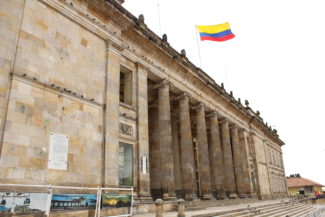The urgency of what is important
By Mauricio García Villegas |
It is time to design effective policies to reduce traffic accidents in the medium and long term. Only with well-founded and cheap public transport can efficient and fair restrictions be applied to private transport.
Read more The role of economic actors in Colombia’s armed conflict: How much do we know?
By Alejandro Jiménez Ospina |
Colombia is undergoing a transitional justice process, in which society wants to know who participated in the internal armed conflict for economic purposes. The recently created Truth Commission must be a space to facilitate this discussion and unveil the role that economic actors played during the war.
Read more The cost of rights
By César Rodríguez Garavito (Se retiró en 2019) |
One dimension that critics of the Constitutional Court often forget is that all rights involve some spending. That is why we must take into account both the costs and the benefits of a judicial decision.
Read more Lessons on transparency
By María Ximena Dávila |
Transparency has become central in the new agenda of democracy and the anti-corruption fight. However, by itself, transparency can be useless and become an empty discourse. This is why civil society groups and citizens should promote not only access to information, but also the active use of it.
Read more Counting farmers
By Irina Alejandra Junieles Acosta |
The opportunity to include peasants in the population census is gone, but the tools that the Supreme Court ordered remain. As proposed in the lawsuit filed, farmers have special constitutional protection and a specific cultural identity, distinct from others.
Read more Elections for Congress and parliamentarism
By Rodrigo Uprimny Yepes |
Many Colombians think, wrongly, that voting for Congress has little importance because the presidential election is the decisive one. A person who has all the virtues to be a great president but who does not have solid majorities in the chambers can hardly have a good government.
Read more Attention to GAFA (II)
By César Rodríguez Garavito (Se retiró en 2019) |
It was thought that what was good for the GAFA was good for the world. It was believed that for the benefits of technology to reach everyone, it would be best to let companies self-regulate.
Read more Democracy in Colombia lacks streets, but has plenty social networks
By Carolina Mila Torres |
How to counteract the centrifugal force with which social networks have co-opted social interaction and public debate?
Read more Will Candelaria go to school? Barriers to access education for Venezuelan migrant children
By Lucía Ramírez Bolívar, Silvia Ruiz |
Although there are no exact figures on the magnitude of the Venezuelan exodus and much less on its demographic characteristics, studies estimate that during this year, about 15% of the population will have left the country. How is Colombia securing the rights to education of the boys and girls who have arrived?
Read more 







